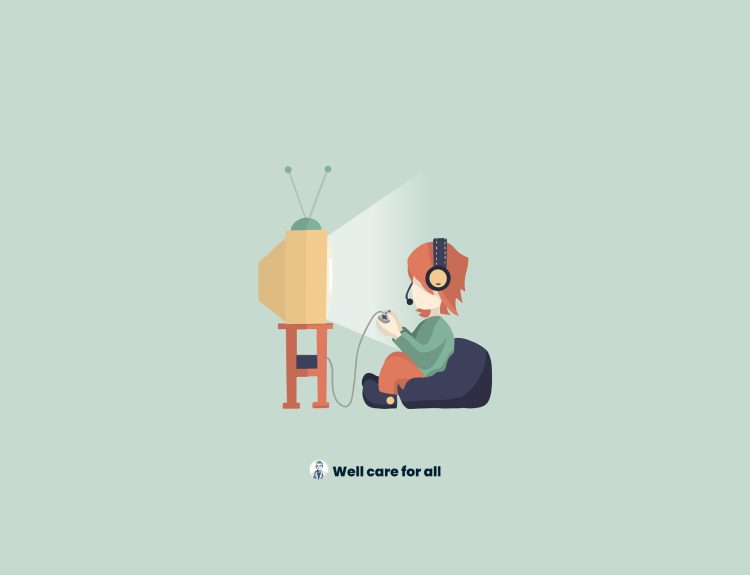
Long hours. Tight deadlines. Constant sitting. The life of a professional driver may seem exciting on the outside, but it’s a lifestyle that can quietly wear down the body and mind. Whether you’re a trucker, rideshare driver, delivery worker, or long-haul chauffeur, prioritizing health on the road isn’t a luxury—it’s a necessity. In this guide, we’ll break down realistic, actionable, and sustainable healthy habits for professional drivers. From diet and sleep to stress and posture, this is your blueprint for thriving behind the wheel—not just surviving.
Why Healthy Habits Matter for Professional Drivers
Professional drivers are at higher risk of health problems like obesity, back pain, heart disease, and mental health issues. According to CDC research, long-haul truckers are twice as likely to be obese and have higher rates of smoking and sleep disorders compared to other occupations.
The good news? Even small and simple changes can lead to significant improvements. Let’s hit the road toward better health.
Fuel Your Body Right
When the road is your office, gas stations and fast-food joints become your cafeteria. But you can make healthier food choices without a fridge or stove.
Tips:
- Pack nutrient-dense snacks, such as nuts, trail mix, Greek yogurt, fruit, protein bars, and hard-boiled eggs.
- Hydrate often: Keep a reusable water bottle nearby. Avoid sugary sodas and energy drinks.
- Watch portions: Consuming too much, even if it’s healthy, can lead to sluggishness and weight gain.
- Choose better options: When eating out, opt for grilled over fried, select salads with protein, or build a bowl with veggies and lean meat.
Pro Tip: Prep your meals in advance when you’re home, and store them in a small cooler with ice packs.
Beat the Sitting Syndrome
Sitting for extended periods affects blood flow, muscle function, and metabolism. But even if you’re on the road all day, you can sneak in physical activity.
Road-Friendly Fitness Ideas:
- Stretch at rest stops: Hamstring stretches, torso twists and shoulder rolls go a long way.
- Take a walk whenever possible: aim for 5-10 minute walks during fuel stops or deliveries.
- Bodyweight workouts: Squats, lunges, pushups, planks—you don’t need a gym.
Goal: Aim for 20–30 minutes of moderate movement per day. Break it up into short bursts if needed.
Prioritize Sleep
Fatigue is one of the leading causes of road accidents. Sleep isn’t just about avoiding crashes—it’s essential for physical repair, memory, and emotional balance.
Healthy Sleep Habits:
- Stick to a routine: Go to bed and wake up at the exact times when possible.
- Create a sleep-conducive environment by Using blackout curtains, white noise apps, or sleep masks.
- Avoid heavy meals and caffeine before bed, as they can disrupt your sleep cycles.
- If you’re sleepy, pull over: A 15–20 minute nap is better than fighting fatigue.
Even in the cab of a truck or a break room, quality rest is possible with proper preparation.
Mental Health on the Move
Isolation, stress, and tight schedules can take a toll on mental health. And when your mind isn’t right, your driving— and life —suffers.
Habits to Protect Mental Wellbeing:
- Call family or friends daily: Human connection is vital.
- Listen to uplifting podcasts or audiobooks: Feed your brain with positive input.
- Practice mindfulness: Simple breathing techniques or 5-minute meditations help regulate stress.
- Avoid doom-scrolling: Social media overload can worsen loneliness and anxiety.
Tip: If you’re feeling depressed or anxious for extended periods, don’t hesitate to talk to a mental health professional—even via telehealth.
Posture and Pain Prevention
The driver’s seat is not your friend when it comes to back and neck health. Bad posture can lead to fatigue, pain, and long-term injuries.
How to Sit Smarter:
- Adjust your seat properly: keep your knees slightly below your hips, your back supported, and your arms relaxed.
- Use lumbar support: A small pillow or rolled towel behind your lower back can make a big difference.
- Take micro-breaks: Every 2–3 hours, take a brief stretch or walk break.
- Strengthen your core: A strong core reduces pressure on your spine.
Don’t wait until you feel pain—prevention is the real power move.
Kick Bad Habits to the Curb
Smoking, excessive caffeine, and poor sleep often go hand-in-hand with driver culture. Breaking these habits isn’t easy, but it’s worth the fight.
How to Start:
- Set a quit date and tell someone for accountability.
- Replace the habit by using alternatives such as gum, sunflower seeds, or stress balls.
- Use support tools, such as nicotine patches, counseling, or apps like QuitNow.
- Track your savings: Watching your money grow helps reinforce progress.
Even cutting back gradually is better than doing nothing at all. Small wins matter.
Stay on Schedule
Drivers often have unpredictable days, but some structure can still help. Routines reduce stress, improve time management, and support consistency.
Sample Daily Routine:
- Morning: Light stretch, quick healthy breakfast, hydration.
- Midday: Take a short walk, enjoy a healthy snack, and call a friend.
- Evening: Enjoy a light dinner, review tomorrow’s route, and unwind with music or a good book.
Create routines that fit your rhythm, not fight against it.
FAQs About Healthy Habits for Professional Drivers
Q: What is the best snack for drivers on the road?
A: Trail mix, fruit, hard-boiled eggs, protein bars, and yogurt are healthy, portable snacks that don’t need refrigeration.
Q: How can I exercise if I drive 10+ hours a day?
A: Use breaks to stretch or walk, and try bodyweight exercises like squats and planks. Just 5–10 minutes at a time adds up.
Q: How much water should a driver drink daily?
A: Aim for at least 2 liters (8 cups) of water a day. If it’s hot or you’re very active, drink more.
Q: How do I stay mentally healthy when I feel isolated?
A: Stay connected with loved ones, use mental health apps, and listen to positive audio content. If needed, reach out to a therapist.
Q: Is it possible to sleep well in a truck or car?
A: Yes. Use a mattress pad, blackout curtains, and earplugs to create a quiet, calm sleep environment.
Conclusion
Driving may be your job, but your body is your real vehicle. Without good health, even the best rig or smoothest highway can feel like a dead-end. The healthy habits for professional drivers we’ve explored aren’t about overhauling your life overnight. They’re about small, daily decisions that build a better you over time. Eat better. Move more. Sleep deeper. Stay connected. Keep in mind that the path to wellness is a marathon, not a sprint.
So, buckle up, stay sharp, and drive your life forward—with health at the forefront.



